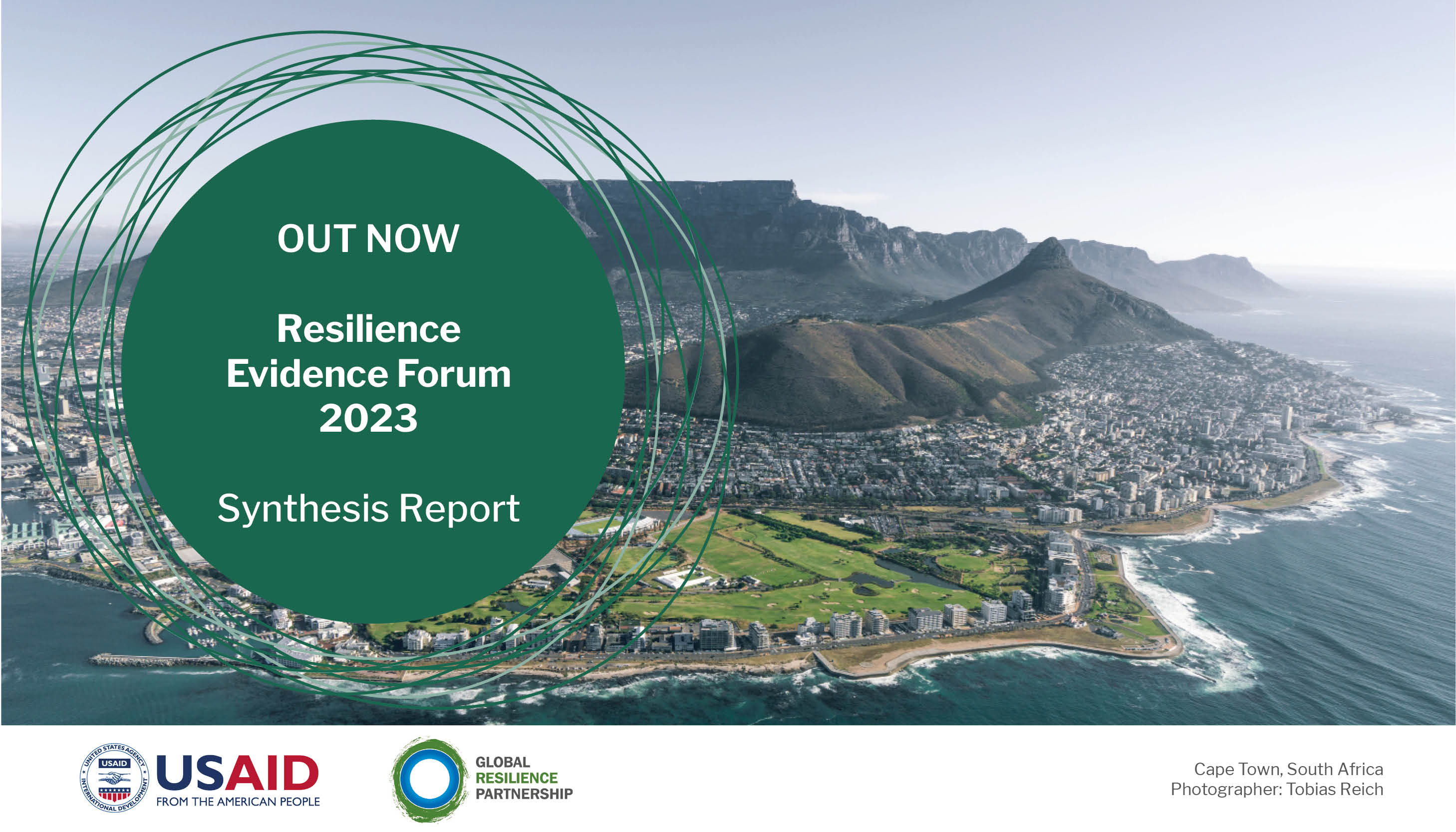Resilience Evidence Forum 2023 Synthesis Report
Explore key discussions held at the June 2023 Resilience Evidence Forum in this comprehensive guide to resilience-building methodologies and evidence.
Image

In a world grappling with escalating crises—from conflict and pandemics to the dire impacts of climate change—never has resilience been more critical. The Resilience Evidence Forum (REF) 2023 Synthesis Report sets a new benchmark as an unmatched guide to resilience-building methodologies and evidence. The report recognizes resilience as the ability to recover from and adapt to shocks and stresses, while enabling longer-term, systemic transformations, and offers actionable insights to inform investment, policy, and decision-making.
Through summarizing the key discussions held at the REF in Cape Town, the report underscores the imperative to build on progress, address gaps, recognize various forms of evidence, and prioritize resilience as a collective goal.
Evidence of successful resilience implementation spans different sectors, stakeholders, and geographies – from the strengthening of small-holder farmers and grower communities’ resilience through radical cross-sector collaboration to the role of climate smart agriculture that combines seed technologies, soil fertility, and innovative financial tools for farmers. Taken together, the evidence detailed in the report showcases the increasing magnitude of resilience building initiatives globally.
However, scaling these evidence-based solutions requires a significant increase in finance. Annual spending on climate resilience alone is less than $50 billion, a mere fraction of the estimated $160 billion to $340 billion required. The private sector contributes just 2% to this insufficient pool, making resilience gains fragile and susceptible to setbacks like those witnessed during the COVID-19 pandemic.
To unlock further funding for resilience programming at the scale needed, the report concludes, evidence needs to be relevant and actionable. This also stands true for policy and decision-making; evidence must not only be rigorous and reliable, but also apply to the policies and decisions it seeks to influence. This will require collaborative action from donors, the private sector, policy makers, governments, community-based organizations and leaders, and research organizations to satisfy evidence needs, avoid duplication of efforts, and focus resources and investments.
In parallel, the report demonstrates the importance of diverse evidence – including that which is grounded in local experience and knowledge – to fortify global resilience efforts in the face of increasing threats and to connect local realities with global goals.




